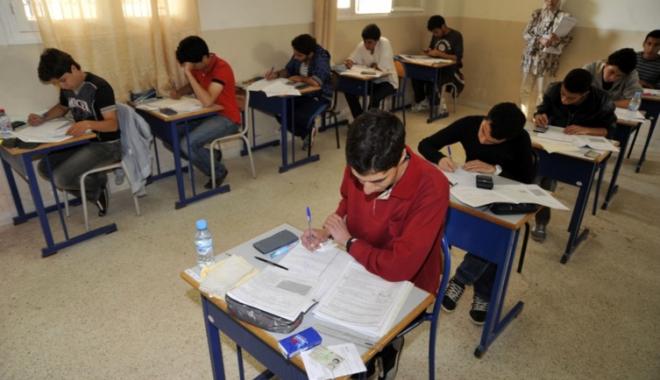[symple_box color=”blue” text_align=”left” width=”100%” float=”none”]
Imed Lassoued is a Tunisian journalist. He earned his Bachelor’s degree in literature from the Faculty of Arts, Letters and Humanities La Manouba of Tunis, Tunisia. You can follow him on Twitter at: @imed2010 [/symple_box]
Tunis, Tunisia—What kind of investments can make of Tunisia a more competitive power in the region? The answer is bullet-point: Education. Investment in education and science could have far-reaching positive consequences. The acting government is launching a national debate aiming at reforming education starting from 23 April, 2015. It is high time to be more critica and to level our educational system. The dwindling in the quality of education in our country coupled with the poor ranking of our higher institutions makes this event a very important one.
Education in Tunisia witnessed three reforms, namely in 1958, 1991, and 2002. The first reform aimed at making education free for all Tunisians. Although it had had positive results like curbing the rate of illiteracy and raising awareness, it nonetheless lacks a long -run vision. The second reform took place in 1991 and aimed at instilling civil rights and universal human values in young learners. Nevertheless, it impoverished the religious education. At that time Ben Ali followed a religious dry up policy. Youngsters were left without any solid teaching that may answer burning questions in the mind of young and adolescent students like the concept of “Jihad” in Islam, the different schools of thought throughout the history of Islam, the moderate values of openness and tolerance and the like. That is why the only open channel to quest this thirst of knowledge came from abroad. It was most of the time TV channels that nurtured in youngsters extremist ideas and dogma. As for the third reform it took place in 2002. This reform helped introduce new pedagogical methods and modern high-tech equipments. However, instead of using it to upgrade the quality of education, it fell short as it lacks any civic horizon and any ethical system. On the contrary the 2002 reform helped produce learners lacking key values and a poor amount of patriotism. Today, young learners are somehow lost. The rate of school drop out is estimated at about 100.000 in 2012.
There is no doubt that the government alone cannot turn these statistics around. This reform is taking place in a positive atmosphere as civil society components, different political parties from various ideological affiliations, and high profile Tunisian experts in the realm of teaching and education are to take part and enrich the debate and the future orientations. We should not forget that parents have the primary responsibility for instilling the ethic of educational achievement in their sons and daughters. Parents should not rely totally on the government alone.
This project is a national one. The contest between different parties involved in this project should not hinge around ideologies. Instead, our political affiliations should be put aside. There is no winner or loser in this debate. Learning from the previous pitfalls that characterized educational reforms maybe a springboard whereby to craft a promising educational system. In a knowledge-based economy it is highly important to focus on the needed skills, especially in our current-days fast growing world economy. The task is to identify the suitable reforms that have the highest impact on student achievement; the recruitment and the adequate training of effective school staff as recent studies show that the most important factor that determines the student’s achievement is the quality of the teacher. Thinking about what makes a good teacher for our kids is the right question that may brainstorm ideas that could be effective in the actual debate about educational reform in Tunisia. Actually what is missing is a national sense of urgency.





